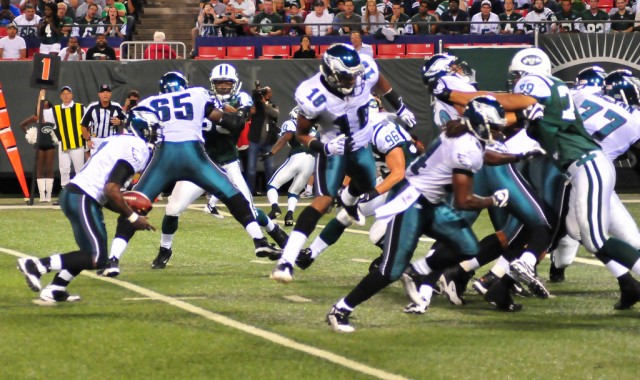NFL players benched due to head injuries have altered brain connections
Ars Technica » Scientific Method 2013-10-25

So far, the long-term effects of repeated head injuries in professional football have been hard to pin down. There are a whole host of economic and social reasons for this, but the simple truth is that the scientific research itself just isn’t clear-cut. While some studies have found decreased cognitive function and an increased risk of Alzheimer’s disease in NFL players, others haven’t found strong evidence linking careers in professional football to long-lasting cognitive decline.
The problem, researchers argue, may be “ecological validity.” In other words, the skills and competencies that scientists test may not accurately represent those required in real life. The psychological tests used in laboratory settings are highly controlled and standardized, while real-world situations are much messier. Players with brain injuries might retain enough cognitive control mechanisms to pass lab-based tests yet fail miserably at the complex scenarios they face in everyday life.
A new study in Scientific Reports clears up some of this confusion, using a combination of cognitive tests and neuroimaging to get a better picture of what happens to football players’ brains as a result of repetitive traumatic brain injuries (TBIs).
Read 12 remaining paragraphs | Comments




